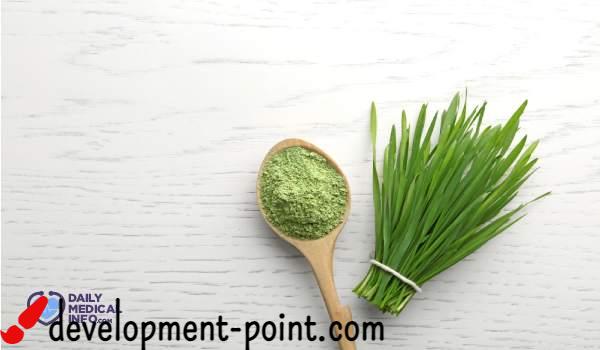Gastroscopy or gastroscopy, why is it done and what are its complications?
In many cases, the doctor may order a procedure Gastroscopy For any reason either as a diagnostic measure or as a treatment measure, learn the reasons for a procedure Gastroscopy And its complications and everything you care about in this article.
What is gastroscopy?
It is a procedure in which a thin and flexible tube called an endoscope is used. It is inserted from the mouth through the throat and esophagus to reach the stomach and up to the duodenum. The tube at its inner end contains a luminous camera with which the doctor can look inside the path in which the endoscope walks so that he can photograph the esophagus, stomach and duodenum. .
When should a gastroscopy be done?
There are several reasons for a doctor to order a gastroscopy, and these include:
How does a gastroscopy work?
Here’s how to prepare for a gastroscopy, how it’s done, and what you can expect after your gastroscopy:
Preparation stage
- You must stop eating and drinking for 6 hours before the procedure.
- You should tell your doctor if you are allergic to any kind of medicine, substances or foods, and you should also tell him if you are taking blood thinners such as warfarin, or if you have any valve disease or you are wearing a pacemaker.
- On the day of the operation, it is recommended that you wear comfortable and loose-fitting clothing.
endoscopy stage
The doctor may spray a local anesthetic in the throat to numb it, and gastroscopy is usually done using anesthetic drugs with an injection into a vein. If you have any sensitivity to anesthesia, you should tell your doctor during the examination.
The doctor inserts the endoscope from the mouth and then passes it into the esophagus to reach the stomach and from there to the duodenum. This procedure usually takes 10 to 15 minutes, and patients are usually discharged from the hospital on the same day if no complications occur.
Post gastroscopy stage
Because most stomach endoscopy is done under the sedative effect of narcotic drugs, some confusion may occur to you after the operation, so some things are not recommended in this case immediately after you leave the hospital:
- Do not drive for 24 hours after the operation.
- Do not engage in any strenuous physical activities.
- Do not operate any machinery that may be dangerous to your health.
Is gastroscopy painful?
It is normal to feel some pain and discomfort in the throat as a result of the speculum rubbing against the throat wall during its insertion, especially after the anesthesia wears off, and this is normal, but if you feel sharp pain or the pain extends to other parts, you should contact the doctor.
Eating after gastroscopy
It is normal to feel hungry and thirsty after the gastroscopy is over, because you have stopped eating or drinking for about 7 hours, but you should not eat or drink anything until you feel completely comfortable and able to swallow easily, and because of the feeling of numbness in the throat as a result of the anesthesia it is possible You cannot eat until an hour after the endoscopy, after that you can start drinking water and fluids, after that and for a period of 24-48 hours the doctor will advise you to eat small and light meals that contain soft foods such as soups, juices, soft eggs and pudding, and within a few days you will be able to return to eating foods normal food.
Complications of gastroscopy
Gastroscopy is a safe procedure, but your doctor should explain to you some of the risks that can occur as side effects or complications during or after the procedure, including:
Bleeding
If the endoscopy aims to take a sample or biopsy from the stomach, this may lead to a little bleeding and the bleeding is supposed to stop on its own after a short period, but if it continues, then you must go to the hospital to deal with it.
Sore throat
This symptom is very common after a gastroscopy procedure, which can last for a few days, but if the pain becomes very severe and extends to the stomach or chest, then you should contact the hospital or go to the emergency room.
catch infection
An infection can occur during any type of operation inside the hospital. Go to the doctor if you feel a fever, chills, or any other symptoms of illness.
chest infection
The patient may inhale some of the secretions that come out of the throat as a result of his anesthesia, and they reach the airway and cause a respiratory infection. Here, a nursing staff or assistant will suction any secretions before they reach the airway during the endoscopy.
Sensitivity to the anesthetic
Some people may have an allergic reaction to the anesthetic used, this is more common in heart patients and those with lung problems, and they may have an increase in heart rate or high blood pressure, but do not worry about that, as the nursing staff monitors vital signs during the procedure To intervene quickly when necessary.
Also read: What is a capsule endoscope for the digestive system and what is it used for?
A hole or tear in the path of the endoscope
There is a small chance that the endoscope will cause a hole or cut in the wall of the esophagus, stomach or duodenum, and surgical intervention may be required to repair this hole or tear.
Finally, you should know that the gastroscopy procedure has become a very common and routine procedure despite its potential risks, so you must choose well the place where you will perform the gastroscopy in order to ensure the efficiency of the workers and the cleanliness and quality of the place, and if you have any questions you can consult one of our doctors from here.

